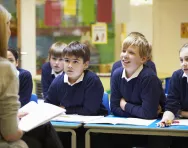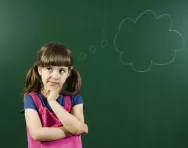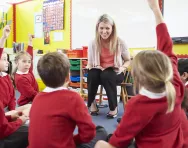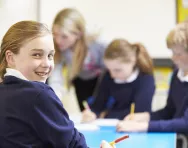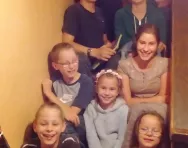Important update from TheSchoolRun
For the past 13 years, TheSchoolRun has been run by a small team of mums working from home, dedicated to providing quality educational resources to primary school parents. Unfortunately, rising supplier costs and falling revenue have made it impossible for us to continue operating, and we’ve had to make the difficult decision to close. The good news: We’ve arranged for another educational provider to take over many of our resources. These will be hosted on a new portal, where the content will be updated and expanded to support your child’s learning.
What this means for subscribers:
- Your subscription is still active, and for now, you can keep using the website as normal — just log in with your usual details to access all our articles and resources*.
- In a few months, all resources will move to the new portal. You’ll continue to have access there until your subscription ends. We’ll send you full details nearer the time.
- As a thank you for your support, we’ll also be sending you 16 primary school eBooks (worth £108.84) to download and keep.
A few changes to be aware of:
- The Learning Journey weekly email has ended, but your child’s plan will still be updated on your dashboard each Monday. Just log in to see the recommended worksheets.
- The 11+ weekly emails have now ended. We sent you all the remaining emails in the series at the end of March — please check your inbox (and spam folder) if you haven’t seen them. You can also follow the full programme here: 11+ Learning Journey.
If you have any questions, please contact us at [email protected]. Thank you for being part of our journey it’s been a privilege to support your family’s learning.
*If you need to reset your password, it will still work as usual. Please check your spam folder if the reset email doesn’t appear in your inbox.
What is Religion and Worldviews?

When your child goes to primary school, you may find they are taught a slightly different version of RE called ‘Religion and Worldviews’. This may be reflected in the changed name of the subject, or the subject may still be called RE but follow the Religion and Worldviews approach. More schools may take up this new approach to teaching RE, so it’s important parents understand exactly what it entails.
What is a worldview?
In 2018 a coalition of parents, teachers, academics and religious leaders came together and decided that RE in schools needed to adapt if it was to keep up with the changing nature of belief in Britain. In its report the Commission on RE recommended that both religious and non-religious ideas be taught through a worldviews approach.
A worldview is a person's way of understanding, experiencing and responding to the world, or a philosophy of life. It can include, but not be limited to, ideas about god, nature, ethics and the nature of reality. A person’s worldview may be a mixture of both religious and non-religious ideas and may also be changing in response to the world around them.
The Commission made the point that everyone has a worldview - even young children - and subsequently they need to be taught the academic skills and knowledge to develop this. They saw this as essential for helping children understand and navigate the diverse nature of belief in the 21st century and the world beyond their own community.
Is RE in all schools changing to become Religion and Worldviews?
Not necessarily. At present, Religion and Worldviews is a recommended approach that offers pupils religious education in line with the latest scholarship and research. A recent Ofsted research review states that high-quality RE helps prepare pupils to ‘engage in a diverse and complex multi-religious and multi-secular society’. This is one of the core aims of the worldviews approach.
From September 2022, RE in Wales will be renamed ‘Religions, Values and Ethics’. While this approach does not fully adopt the 2018 Commission on RE recommendations, it reflects some of the changes.
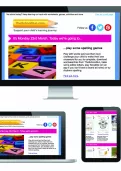

Boost Your Child's Learning Today!
- Start your child on a tailored learning programme
- Get weekly English & maths resources sent direct to you
- Keep your child's learning on track
What do children learn in Religion and Worldviews?
This still depends on the school or the locally agreed syllabus. However, perhaps the biggest change you may notice is that your children may begin to talk about everyone having a worldview and to appreciate that these worldviews may include non-religious ideas and religious ones. They will continue to learn about Christianity and traditions like Buddhism, Humanism, Hindu Dharma (Hinduism), Islam, Judaism and Sikhi (Sikhism). Children may be taught about religion alongside concepts such as secularism, atheism and agnosticism. Worldviews significant to the local community may also be included such as Jainism, the Baha'i Faith and Zoroastrianism.
The way that children learn about these worldviews may also be slightly different from the sort of RE lessons you remember from your school days. Children are encouraged to look at the impact of religious and non-religious worldviews on individuals, communities and societies. An RE lesson might start with a look at a specific teaching or story linked to a particular tradition, and then look at a case study of how this plays out in a person’s day to day life. This approach is intended to provide children with an opportunity to explore the diversity of lived experience and to consider the impact of religion in the modern world.
Does this approach mean my child will learn less about religion?
The use of the Religion and Worldviews approach will not limit curriculum makers’ choices about how many religions and beliefs to include in their programme of study. Some schools, such as those with a religious character, may choose to focus on one or two specific religious traditions. Others may choose or be directed by a locally agreed syllabus to include Christianity, or the other principal religions represented in Britain, alongside non-religious worldviews as set out in the legal framework.
Find out more about Religion and Worldviews
To find out more about an education in religion and worldviews you can visit the ReThinkRE site to keep up to date with developments. You can also watch the following short video narrated by Professor Francesca Stavrakopoulou of the University of Exeter.
